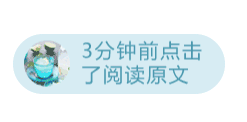Women have physiological characteristics related to menstruation, leucorrhea, pregnancy, and childbirth. Therefore, inquiries regarding women’s health should focus on the conditions of menstruation, leucorrhea, pregnancy, and childbirth.1. Inquiry about Menstrual CycleThe menstrual cycle refers to the interval between each menstruation. Normally, the menstrual cycle occurs every 28 to 30 days. If menstruation occurs more than a week early, it is termed early menstruation, often due to excess heat disturbing the blood or qi deficiency failing to contain the blood. If menstruation is delayed by a week or longer, it is called late menstruation, commonly caused by cold stagnation, qi stagnation, blood deficiency, or blood stasis. Irregular menstruation, where periods are sometimes early and sometimes late, is termed irregular menstruation, often due to liver qi stagnation or spleen and kidney deficiency, and may also be due to blood stasis. Excessive menstrual bleeding, or continuous menstrual flow, is referred to as menorrhagia, often caused by blood heat or qi deficiency. If menstruation stops for more than three months in a woman of menstruating age who is not pregnant or not breastfeeding, it is often due to qi deficiency and blood loss, or insufficient blood production, or due to qi stagnation, blood stasis, cold stagnation, liver qi stagnation, or obstruction of the uterine vessels. 2. Inquiry about Menstrual VolumeThe normal menstrual volume is approximately 50 milliliters, but there can be slight variations. If the menstrual volume exceeds 100 milliliters, it is often due to blood heat disturbing the blood or qi deficiency failing to contain the blood. If the menstrual volume is less than 30 milliliters, it is often due to blood deficiency, insufficient blood production, or due to cold stagnation, blood stasis, or phlegm-damp obstruction.
2. Inquiry about Menstrual VolumeThe normal menstrual volume is approximately 50 milliliters, but there can be slight variations. If the menstrual volume exceeds 100 milliliters, it is often due to blood heat disturbing the blood or qi deficiency failing to contain the blood. If the menstrual volume is less than 30 milliliters, it is often due to blood deficiency, insufficient blood production, or due to cold stagnation, blood stasis, or phlegm-damp obstruction. 3. Inquiry about Menstrual Color and QualityThe normal menstrual color is bright red, with a consistency that is neither too thin nor too thick, and without blood clots. If the menstrual color is light red or even pink, with a thin consistency, it indicates qi deficiency or blood deficiency. If the menstrual color is dark red and thick, it is often due to internal heat of the blood, indicating a heat syndrome. If the menstrual color is purple-dark and contains blood clots, it is often due to qi stagnation and blood stasis, frequently accompanied by dysmenorrhea.
3. Inquiry about Menstrual Color and QualityThe normal menstrual color is bright red, with a consistency that is neither too thin nor too thick, and without blood clots. If the menstrual color is light red or even pink, with a thin consistency, it indicates qi deficiency or blood deficiency. If the menstrual color is dark red and thick, it is often due to internal heat of the blood, indicating a heat syndrome. If the menstrual color is purple-dark and contains blood clots, it is often due to qi stagnation and blood stasis, frequently accompanied by dysmenorrhea. 4. Inquiry about LeucorrheaLeucorrhea refers to the vaginal secretions in women. Normal leucorrhea is a small amount, colorless, and odorless, serving to lubricate the vagina. Inquiries about leucorrhea should consider its volume, color, quality, and odor. If the leucorrhea is yellow or red, continuous, thick, and foul-smelling, often accompanied by irritability and vulvar itching, it is commonly due to liver qi stagnation transforming into heat and damp-heat descending. If the leucorrhea is white, abundant, resembling mucus, continuous, and without a strong odor, accompanied by fatigue, poor appetite, or coldness in the lower back, it often indicates spleen deficiency and improper transformation, leading to dampness descending.
4. Inquiry about LeucorrheaLeucorrhea refers to the vaginal secretions in women. Normal leucorrhea is a small amount, colorless, and odorless, serving to lubricate the vagina. Inquiries about leucorrhea should consider its volume, color, quality, and odor. If the leucorrhea is yellow or red, continuous, thick, and foul-smelling, often accompanied by irritability and vulvar itching, it is commonly due to liver qi stagnation transforming into heat and damp-heat descending. If the leucorrhea is white, abundant, resembling mucus, continuous, and without a strong odor, accompanied by fatigue, poor appetite, or coldness in the lower back, it often indicates spleen deficiency and improper transformation, leading to dampness descending. 5. Inquiry about Pregnancy-Related ConditionsFor married women of childbearing age with previously normal menstruation who suddenly experience cessation of menstruation accompanied by nausea and vomiting, pregnancy should be considered. If pregnancy is confirmed, it is important to inquire about the number of pregnancies, spontaneous abortions, and induced abortions. Common pregnancy-related conditions include: pregnancy sickness, characterized by aversion to food, nausea, vomiting, or inability to eat, often due to stomach deficiency, liver fire, or phlegm stagnation; and abdominal pain during pregnancy, which is recurrent and often due to blood deficiency, yang deficiency, or qi stagnation. Additionally, caution should be exercised with medication during pregnancy to avoid affecting fetal development.
5. Inquiry about Pregnancy-Related ConditionsFor married women of childbearing age with previously normal menstruation who suddenly experience cessation of menstruation accompanied by nausea and vomiting, pregnancy should be considered. If pregnancy is confirmed, it is important to inquire about the number of pregnancies, spontaneous abortions, and induced abortions. Common pregnancy-related conditions include: pregnancy sickness, characterized by aversion to food, nausea, vomiting, or inability to eat, often due to stomach deficiency, liver fire, or phlegm stagnation; and abdominal pain during pregnancy, which is recurrent and often due to blood deficiency, yang deficiency, or qi stagnation. Additionally, caution should be exercised with medication during pregnancy to avoid affecting fetal development. 6. Inquiry about Postpartum ConditionsAfter childbirth, attention should be paid to the presence of fever, chills, and abdominal pain to prevent postpartum deficiency or invasion of external pathogens. Retained lochia and abdominal pain that resists pressure are often caused by qi deficiency, blood heat, blood stasis, and pathogenic toxins.
6. Inquiry about Postpartum ConditionsAfter childbirth, attention should be paid to the presence of fever, chills, and abdominal pain to prevent postpartum deficiency or invasion of external pathogens. Retained lochia and abdominal pain that resists pressure are often caused by qi deficiency, blood heat, blood stasis, and pathogenic toxins. End
End
Recommended Reading:
【Traditional Chinese Medicine Knowledge Lecture】TCM Four Diagnostic Methods—Inquiry into Children’s Health【Traditional Chinese Medicine Knowledge Lecture】TCM Four Diagnostic Methods—Inquiry into Emotions【Traditional Chinese Medicine Knowledge Lecture】TCM Four Diagnostic Methods—Inquiry into Urination and Defecation
Copyright Statement:
-
This article is adapted from: 《Introduction to Traditional Chinese Medicine for Beginners》,Editor: Xu Yihan;If there is any infringement, please delete.
-
Copyright belongs to the relevant rights holders. If there is any improper use, please contact us.
-
This public account shares articles for learning and reference only. Please do not self-medicate.
 Contact Us
Contact Us Website: http://tcm.ckcest.cnTel: 010-64089578Email: [email protected]
Website: http://tcm.ckcest.cnTel: 010-64089578Email: [email protected]
 Click the end of the article “Read the original text” for our mutual progress!
Click the end of the article “Read the original text” for our mutual progress!

